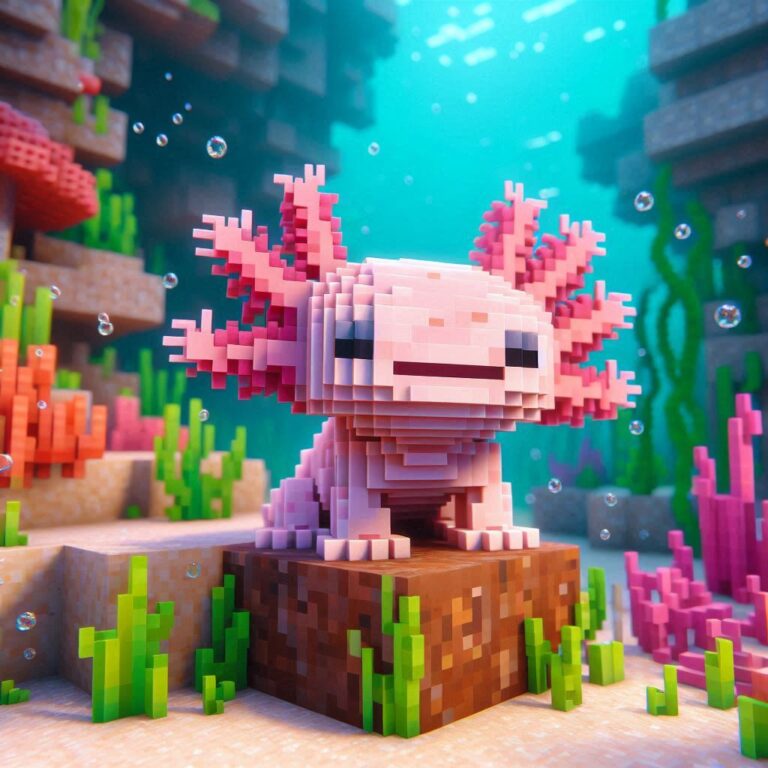
Axolotls can eat fish food, but it should not be their primary source of nutrition. While fish food can serve as an occasional treat or supplement to their diet, relying solely on it can lead to nutritional deficiencies and health issues. Axolotls are carnivorous amphibians that require a diverse diet consisting of live or frozen foods, such as bloodworms, earthworms, and brine shrimp, along with specially formulated axolotl pellets. Fish food lacks some essential nutrients necessary for axolotl health and growth, and overfeeding can result in digestive problems and poor water quality in their tank. Therefore, while axolotls can consume fish food, it should be given sparingly and balanced with other suitable food options to ensure their optimal health and well-being.
What does fish food do to the axolotl?
Fish food can provide some nutritional benefits to axolotls, but it’s essential to understand its limitations. Axolotls are carnivorous amphibians with specific dietary needs, and while fish food can offer protein and other nutrients, it may not provide a complete and balanced diet. One significant aspect to consider is the impact on their digestion. Unlike fish, axolotls are not equipped to digest certain fillers and additives commonly found in commercial fish foods. These fillers can lead to digestive issues such as bloating, constipation, and even impaction, which can be detrimental to the axolotl’s health if not addressed promptly. Additionally, the nutritional composition of fish food may not align perfectly with the dietary requirements of axolotls, potentially leading to deficiencies in essential vitamins and minerals.
Impact on digestion
The impact of fish food on axolotl digestion is a crucial consideration for their overall health. While axolotls may consume fish food readily, their digestive systems are not designed to process certain ingredients commonly found in commercial fish foods, such as grains and plant matter. These indigestible components can accumulate in their digestive tract, leading to blockages and discomfort. Additionally, some fish foods may contain high levels of fats or oils, which can disrupt the balance of beneficial bacteria in the axolotl’s gut, further exacerbating digestive issues. Therefore, while fish food can be offered as an occasional treat, it’s essential to monitor their consumption closely and ensure they receive a diet that supports healthy digestion.
Nutritional intake
Axolotls require a diet rich in protein to support their growth, development, and overall health. While fish food can provide some protein, it may lack the variety and balance of nutrients necessary for optimal nutrition. Axolotls also require certain vitamins and minerals that may not be present in sufficient quantities in fish food alone. Therefore, relying solely on fish food as a primary source of nutrition may result in deficiencies that can impact their health and wellbeing. Supplementing fish food with other protein-rich foods such as earthworms, bloodworms, and axolotl pellets can help ensure they receive a well-rounded diet that meets their nutritional needs.
Health effects
The health effects of feeding axolotls fish food can vary depending on factors such as the quality of the food, frequency of feeding, and overall diet. While fish food can offer some nutritional benefits, it’s essential to be aware of potential risks. For example, overfeeding fish food can lead to obesity and associated health issues, such as fatty liver disease. Additionally, certain ingredients in fish food may be allergenic or difficult for axolotls to digest, leading to gastrointestinal discomfort and inflammation. Therefore, it’s crucial to carefully select high-quality fish foods specifically formulated for carnivorous aquatic species and to monitor the axolotl’s health closely for any signs of dietary imbalance or digestive problems. By offering a varied diet that includes a mix of live or frozen foods and commercial axolotl pellets, axolotl owners can help promote optimal health and longevity for their aquatic companions.
Nutritional Value of Fish Food for Axolotls
Fish food can serve as a convenient source of nutrition for axolotls, but understanding its nutritional value is crucial for their health and well-being. When selecting fish food for axolotls, it’s essential to consider various factors, including protein content, fat content, and vitamin and mineral composition. While fish food can provide some essential nutrients, it may not offer a complete and balanced diet on its own. Therefore, supplementing fish food with other protein-rich foods and specially formulated axolotl pellets is recommended to ensure axolotls receive all the nutrients they need to thrive.
Protein Content
Protein is a vital component of axolotls’ diets, essential for growth, muscle development, and overall health. Fish food typically contains protein derived from fish meal or other aquatic sources, making it a suitable protein source for axolotls. However, not all fish foods are created equal, and the protein content can vary significantly between different brands and formulations. It’s essential to choose high-quality fish foods with a protein content specifically tailored to the dietary needs of carnivorous amphibians like axolotls. Additionally, supplementing fish food with live or frozen foods such as bloodworms and earthworms can provide additional protein and variety to their diet.
Fat Content
While axolotls require some fat in their diet for energy and essential fatty acids, excessive fat intake can lead to health problems such as obesity and fatty liver disease. Therefore, it’s crucial to select fish foods with a moderate fat content that aligns with axolotls’ dietary requirements. Additionally, feeding fish food as an occasional treat rather than a primary source of nutrition can help prevent overconsumption of fat and maintain a healthy weight for axolotls.
Vitamin and Mineral Composition
In addition to protein and fat, axolotls require a range of vitamins and minerals to support various physiological functions, including immune function, bone health, and metabolic processes. Fish food may contain some vitamins and minerals naturally occurring in the ingredients, but supplementation with other foods or vitamin supplements may be necessary to ensure axolotls receive all the nutrients they need. Calcium and phosphorus are particularly important for axolotls’ bone health, so it’s essential to provide foods rich in these minerals, such as calcium-fortified axolotl pellets or calcium-rich insects like mealworms and crickets. By paying attention to the nutritional content of fish food and supplementing as needed, axolotl owners can help ensure their aquatic pets receive a well-rounded diet that promotes optimal health and longevity.
Pros and Cons of Eating Fish Food for Axolotls

Feeding fish food to axolotls comes with its own set of pros and cons, which axolotl owners should consider when deciding on their pets’ diet. Understanding these factors is crucial for providing the best care for axolotls and ensuring their overall health and well-being.
Pros
- Convenience: One of the primary advantages of feeding fish food to axolotls is its convenience. Fish food is readily available in pet stores and comes in various forms such as pellets, flakes, and freeze-dried options, making it easy for axolotl owners to provide their pets with a nutritious meal.
- Affordability: Fish food is generally affordable and can be a cost-effective option for feeding axolotls, especially when compared to live or frozen foods such as bloodworms or brine shrimp.
- Nutritional Value: Many commercial fish foods are formulated to provide essential nutrients for fish, including protein, vitamins, and minerals. While fish food may not be a complete diet for axolotls, it can still contribute to their overall nutrition when supplemented with other foods.
Cons
- Incomplete Nutrition: Despite its nutritional value, fish food may not provide all the essential nutrients axolotls need for optimal health. Axolotls require a varied diet that includes a mix of protein sources and supplementation with axolotl pellets or live foods to ensure they receive all the necessary nutrients.
- Digestive Issues: Some ingredients commonly found in commercial fish foods, such as fillers and preservatives, may be difficult for axolotls to digest. Feeding axolotls fish food exclusively can lead to digestive problems such as bloating, constipation, and impaction.
FAQs
Q. Can axolotls survive on fish food alone?
A. No, axolotls require a balanced diet consisting of live or frozen foods as well as commercial axolotl pellets.
Q. What happens if an axolotl eats only fish food?
A. Axolotls may suffer from malnutrition, leading to health issues such as stunted growth, weakened immune system, and organ failure.
Q. Is it safe to occasionally feed axolotls fish food?
A. Yes, fish food can be given occasionally as a supplement, but it should not be the primary source of nutrition.
Q. What type of fish food is suitable for axolotls?
A. High-quality sinking pellets specifically formulated for carnivorous aquatic species are best for axolotls.
Q. How often should I feed fish food to my axolotl?
A. Fish food should only be given as an occasional treat, preferably no more than once or twice a week.
Q. Can axolotls eat flakes or floating fish food?
A. No, axolotls are bottom-dwelling creatures and may not recognize or consume floating fish food effectively.
Q. Are there any specific nutrients in fish food that are beneficial for axolotls?
A. Fish food typically contains protein, which is essential for axolotls’ growth and muscle development.
Q. What are the risks of overfeeding axolotls fish food?
A. Overfeeding can lead to obesity, digestive issues, and water quality problems in the axolotl tank.
Q. Can axolotls develop allergies to fish food?
A. While uncommon, axolotls can develop sensitivities or allergies to certain ingredients in fish food, leading to adverse reactions.
Q. Should fish food be the primary diet for juvenile axolotls?
A. No, juvenile axolotls require a varied diet rich in protein to support their rapid growth and development.
Conclusion
In conclusion, while fish food can be a convenient and affordable option for feeding axolotls, it’s essential to weigh the pros and cons carefully. While fish food provides convenience and some nutritional value, it may not offer all the essential nutrients axolotls need for optimal health. Axolotls require a varied diet that includes a mix of protein sources and supplementation with axolotl pellets or live foods to ensure they receive all the necessary nutrients. Additionally, feeding axolotls fish food exclusively can lead to digestive issues and potential health problems, such as obesity and allergic reactions. Therefore, axolotl owners should strive to provide a balanced diet that meets their pets’ dietary needs while monitoring their health closely for any signs of dietary imbalance or health issues.

Hassan Shah carries over four years of hands-on expertise in caring for axolotls, guided by his cherished companion ‘Little Bruno,’ a thriving axolotl under his attentive care for three years.



